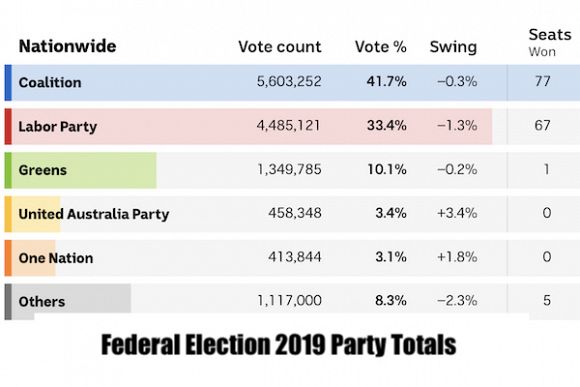A reformed democratic system that favours fair representation in Parliament for all voters is gaining popularity in the UK, writes Dr Klaas Woldring.
ANYONE WHO HAS seen the many humorous videos of John Cleese on proportional representation (PR), can hardly believe that it has taken this long for PR to finally be rapidly gaining approval in the UK. But it has, without question. It is expected the that British Labour Party will soon adopt it.
The 2016 Alliance Building Conference (ABC) in Westminster kickstarted a cross-party movement for real democracy. In October 2017 a second ABC was held, where activists and allies made plans in the wake of that year’s General Election. Fifty attendees gathered in the Jubilee room in Parliament — including MPs, peers, local and national group leaders, and allied organisations.
The campaign adopted the name “Make Votes Matter”. MVM facilitators told the conference about the campaign's priorities for achieving PR in the House of Commons. They aim to bring together all the parties, organisations and public figures who want fair votes, to work together in the PR Alliance.
That’s what the ABC is all about and the decisions they make should inform and support the work of the movement for fair votes. The aim is for at least one of the major parties to fully commit to genuine electoral reform. The good news is there is widespread support for PR across Labour MPs.
In July 2019, the Alliance launched the Good Systems Agreement which is described as an ‘unprecedented cross-party agreement about what good voting systems look like’ and also states that the people should choose the best system for the UK through a ‘fully informed, deliberative process, like a citizens’ assembly’. Reports from June 2022 indicate that further progress has happened.
Doug Cowan (Head of Digital, UNISON — Public Service Union) reported:
Delegates at UNISON’s National Delegate Conference have just backed a motion calling on the UK’s biggest union to “reject First Past the Post” and for the adoption of PR for UK general elections.
The vote, which saw an overwhelming majority of delegates back the motion, marks a significant moment for the Labour movement. Unite the Union, the UK’s second biggest union, voted to reject Westminster’s distorting and outdated First Past the Post (FPTP) voting system in October last year.
UNISON will now join a growing number of Labour-affiliated trade unions in support of electoral reform alongside Unite, the Associated Society of Locomotive Engineers and Firemen (ASLEF), the Communication Workers Union (CWU), the Musicians Union and the Technical Standards and Safety Authority (TSSA).
There is growing momentum across the trade union and Labour movement for PR. The vote comes less than a year after a motion on electoral reform was narrowly defeated at a Labour Party conference due to a lack of support amongst union representatives, despite 80% of local party delegates supporting the change.
It should come as no surprise that support for proportional representation is growing when it’s clear that the status quo has failed so many for so long. Election after election too many voters see their voices shut out.
We need an end to our broken First Past the Post voting system and the winner-takes-all mentality that dominates our politics. Only a fair and proportional voting system can ensure that all voices across the country are fairly represented in Parliament.
Considerable emphasis is placed on the superior fairness of the PR system.
In this context, it is instructive to also consider Section 29 of the Australian Labor Party’s 2021 Policy Platform:
‘Labor believes in the democratic value of one vote, one value and will continue to advance steps to ensure all citizens are fairly represented regardless of where they live.’
An effort to introduce a different electoral system for general elections in the UK was attempted by the Liberal Democrats in an official referendum in 2011. It was based on the alternative vote system (AV) comparable to what is used in Australia. It was often described as “the Australian vote”.
The proposal to introduce AV was rejected by 67.9% of voters on a national turnout of 42%. It is also based on Single Member Districts. It was quite surprising that the Lib Dems did not opt for party-list proportional representation, based on multi-member districts, of which there were numerous successful examples just across the Channel.
Dr Klaas Woldring is a former associate professor at Southern Cross University and former convenor of ABC Friends (Central Coast).
 This work is licensed under a Creative Commons Attribution-NonCommercial-NoDerivs 3.0 Australia License
This work is licensed under a Creative Commons Attribution-NonCommercial-NoDerivs 3.0 Australia License
Support independent journalism Subscribe to IA.














